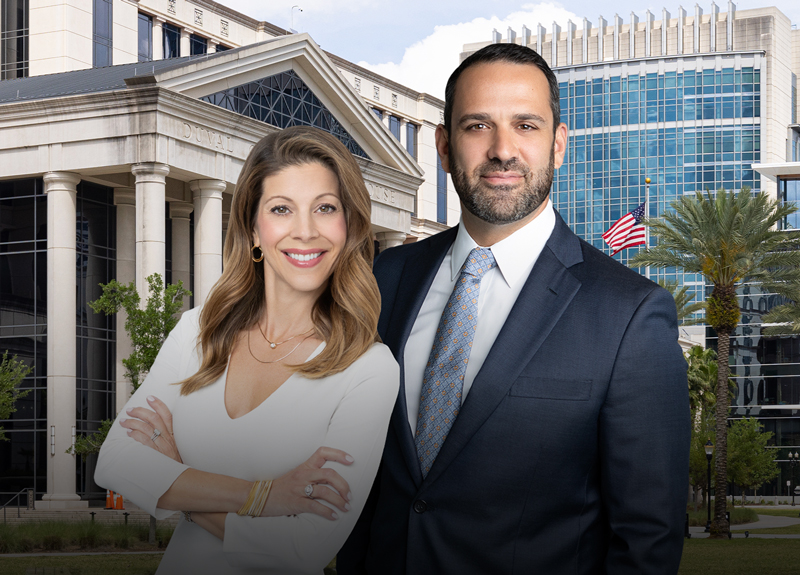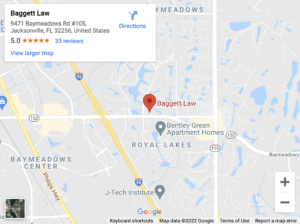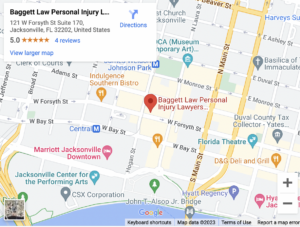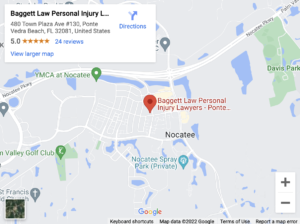
Someone commits an intentional tort against you when they deliberately harm you in a manner that Florida law recognizes as a possible basis for financial compensation. Typically, this means that the perpetrator physically injured you or damaged your property, although the law defines “harm” more broadly than this.
List of Intentional Torts

Following is a list of the most commonly asserted intentional torts.
Assault and Battery
For intentional tort purposes, someone commits an assault against you when they deliberately place you in reasonable fear of imminent bodily injury. A classic example would be putting a gun in your face. There doesn’t need to be any physical contact for an assault to occur.
For a battery to occur, the perpetrator must have caused a “harmful or offensive touching” of the victim. This could be an injury, a sexual assault, or even performing surgery on you without your consent.
An intentional murder would count as both an intentional tort and a wrongful death. A negligent act that killed someone, by contrast, might generate a wrongful death claim without constituting an intentional tort.
False Imprisonment
False imprisonment occurs when someone illegally confines you within certain boundaries against their will. It does not include such confinement when they have the legal authority to confine you, such as a police officer making a lawful arrest. Although a rogue police officer can indeed commit the tort of false imprisonment, you don’t have to be a police officer to commit this tort.
Intentional Infliction of Emotional Distress
A person commits the tort of intentional infliction of emotional distress when they act in an outrageous manner for the purpose of causing the victim emotional distress. A possible example would be “flashing” someone for the purpose of shocking and distressing them. The elements of intentional infliction of emotional distress are:
- The defendant commits an act that would distress an ordinary person;
- The defendant’s conduct was outrageous;
- The defendant acted intentionally, or at least recklessly,
- The victim suffered enough emotional distress to adversely affect their mental health
- The defendant’s outrageous conduct was the proximate cause of the defendant’s distress.
Florida law also recognizes the tort of “negligent infliction of emotional distress,” although this is not an intentional tort.
Conversion
Conversion means depriving you of your property. However, it doesn’t necessarily mean theft or even dishonesty. Suppose, for example, that you rent something from a company for a week, and they mistakenly take it back after only three days. That is an example of conversion, even though it doesn’t amount to theft.
Defamation
Someone defames you when they tell a lie about you that damages your reputation and thereby harms you. Someone might, for example, falsely accuse you of a dishonest act that caused your employer to fire you. Spoken defamation is slander, while written defamation is libel.
Trespass to Land
Trespass to land is unlawful entry onto someone else’s land. Typically, it means entry without the owner’s permission, but sometimes entry without the owner’s permission is nevertheless legal.
Typically, the damages for trespass to land are not high because the typical trespasser doesn’t damage real estate. Demolishing your home with a bulldozer, however, would justify a large compensation claim.
Trespass to Chattels
“Chattel” is an archaic word for personal property. It excludes real property and intellectual property. Trespass to chattels is an intentional interference with your lawful possession of a personal property.
For example, taking your car out for a temporary joy ride without your permission is trespass to chattels. On the other hand, if the perpetrator doesn’t return your car, it’s permanent, which renders the tort a conversion instead of a trespass to chattels.
Punitive Damages
Some of the above-listed torts do not involve malicious intent. Rather, the mere intent to perform the act, even without malice, constitutes the “intent” that you need to define the offense as an intentional tort.
Other torts, such as assault and battery, involve malicious criminal intent. In such cases, you might be able to win punitive damages in addition to the usual compensatory damages. This would result in a financial windfall in your favor.
In Personal Injury Law, if You Don’t Win, You Don’t Pay
Intentional torts generate income if you win. A court might award you money for the economic losses and the emotional suffering you endured, for example. Because of this setup, there is usually no need for your Jacksonville personal injury lawyer to charge you by the hour.
Instead, they will probably charge you on a contingency fee basis–in other words, a pre-agreed percentage of whatever amount you win. The advantage of this arrangement is that you don’t need a dime upfront to hire a lawyer.
Contact a Jacksonville Personal Injury Lawyer To Help You With an Intentional tort claim.
To discuss the compensation you can seek for your Intentional tort claim, Call Baggett Law Personal Injury Lawyers at (904) 396-1100 or contact us online to schedule a free consultation. Our Jacksonville personal injury lawyers are standing by.




